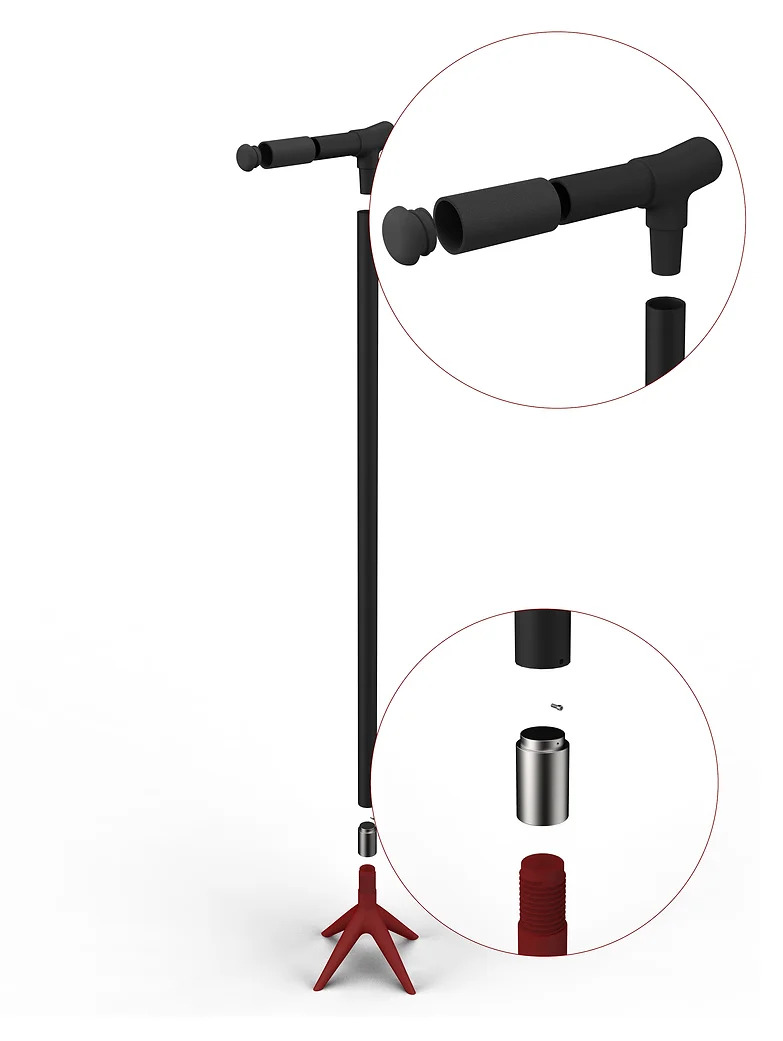Plinth
A modular cane system concept for post-surgical use
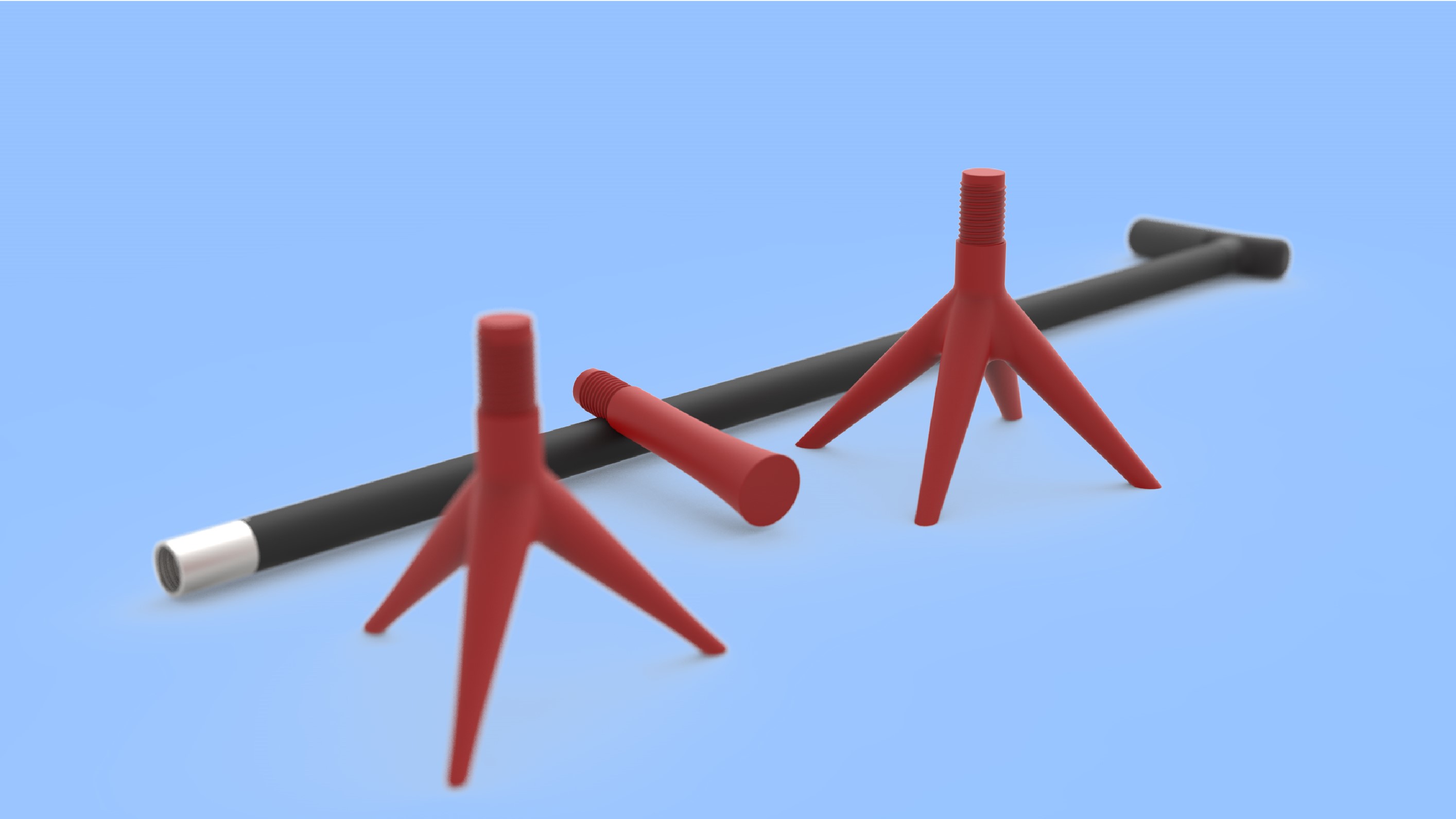
The Ask
Falling is the leading cause of injury-related deaths for the elderly in the USA. Surgical procedures are one of the causes as the patient is temporarily healing.
How do we assisted in the recovery of patients after surgical procedures?
Timeline
Spring 2019
10 weeks
Project Team
Ashesh Gohil
My Role
User Research
Industrial Design
Market Analyses
Walking aids present in the current market were categorized based on sustainability, affordability, stability, and sturdiness. In doing so, the following opportunities presented themselves -
-
Absence of products which helped with posture, which eases recovery.
-
Good and easy-to-use products which are actually affordable.
- Too many parts which caused complications with assembly.
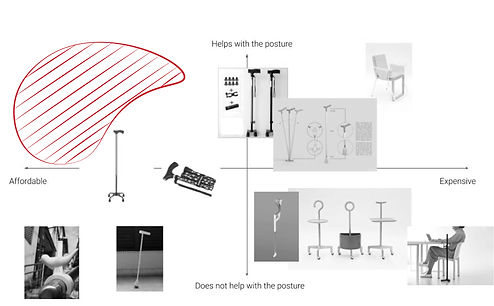

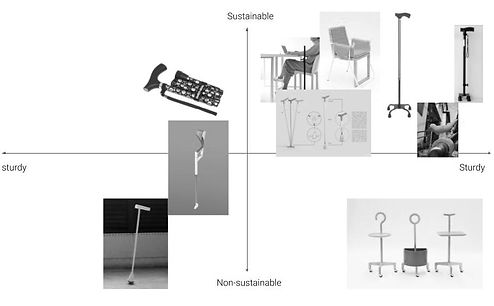
Initial Ideation
To minimise complications & reduce impact on shoulder joints


Prototyping & Testing
The first few prototypes were made with readily available materials.
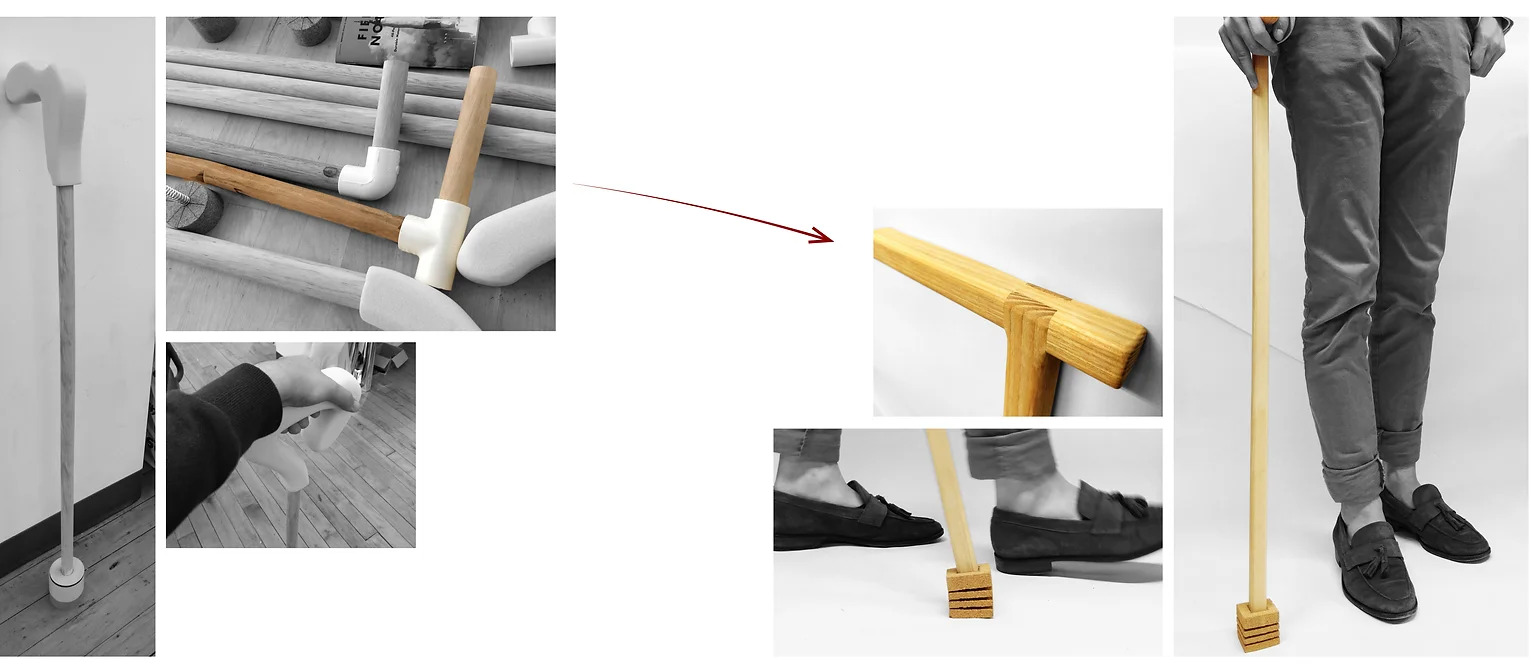
This was replicated to create a wooden model. The handle was modified to a simpler variation as shown. The dampening mechanism was made with cork and spring.
User insights
"I don't use a cane normally, but after my surgery, I have to use the one provided by the hospital. It's only for a short amount of time. I use this large one for the first few weeks, and then the normal one. It's only a matter of 4-6 weeks before I don't use it anymore."
Chris Turner, 78

Based on this feedback, modular elements were added to reduce dependence on multiple walking sticks.
Final Ideation
Focused on ease of use
For patients who would not be dependent on canes, providing a modular recovery alternative than using multiple canes is more feasible.
![]()
For patients who would not be dependent on canes, providing a modular recovery alternative than using multiple canes is more feasible.

Prototyping & Testing
Testing with a wooden prototype and creating a works-like model for final design changes.

Final Concept
